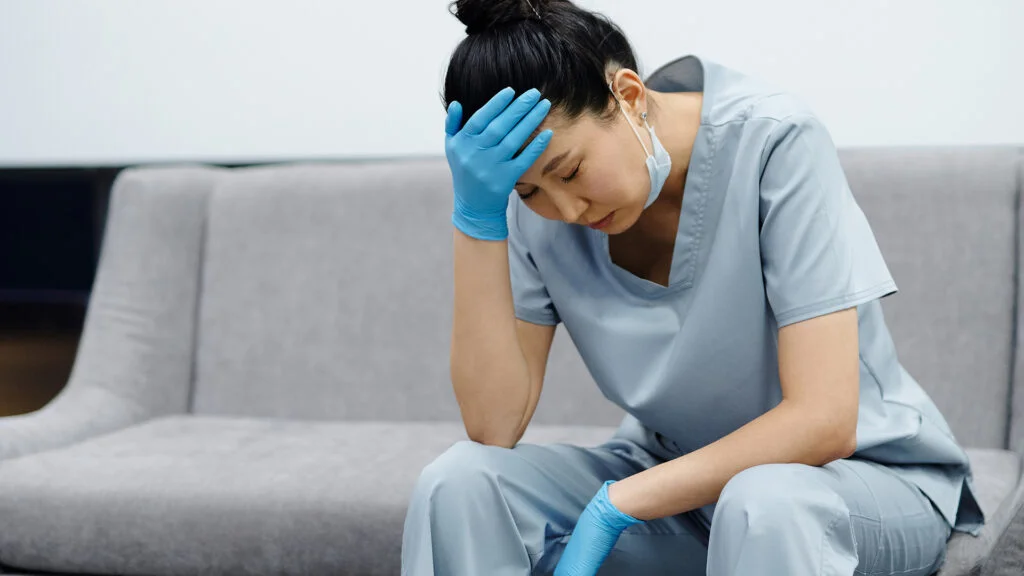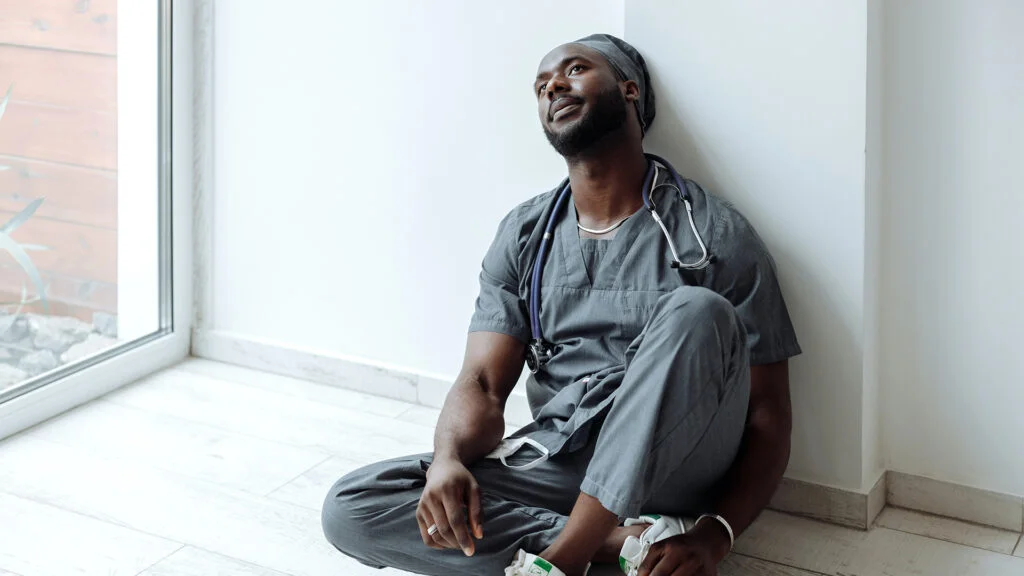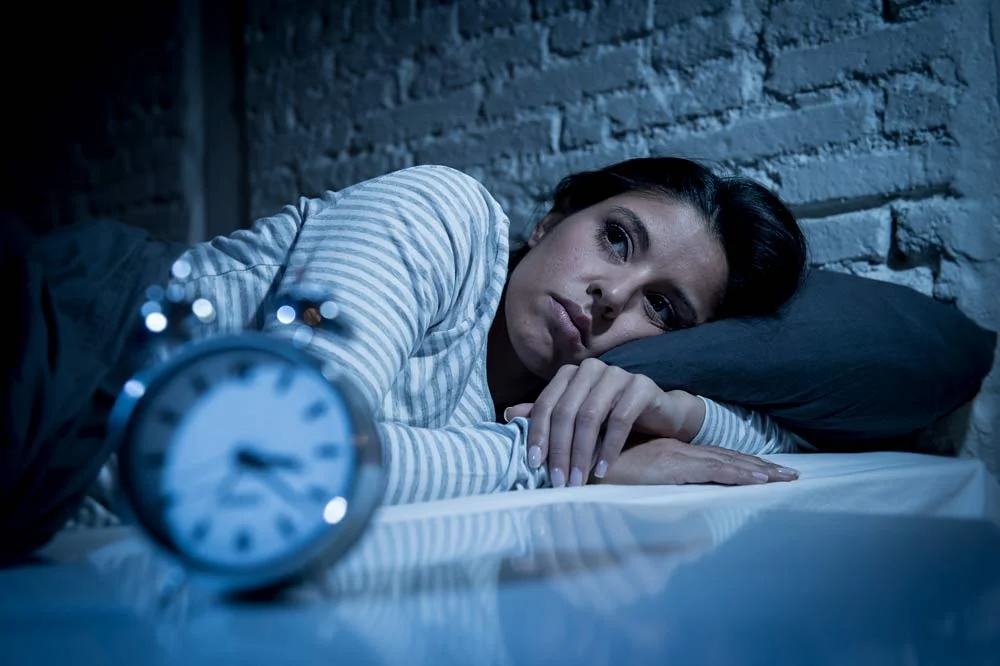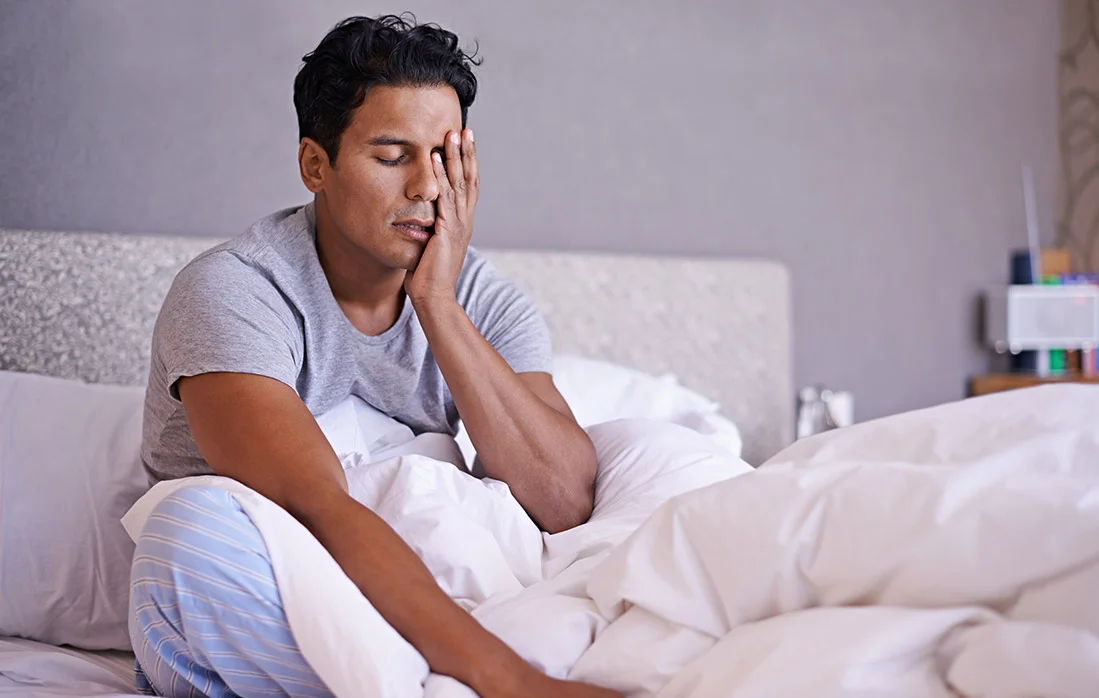
A new mobile app called SleepSync is aimed at helping shift workers actively manage their sleep cycles so they can avoid health pitfalls that come with working during off hours.
SleepSync was developed by a team at Monash University. While there are a slew of sleep apps on the market, developers of the app say it’s just for shift workers. The university says it’s unique because it incorporates a worker’s professional and personal schedule, sleep and wake times, and other individual factors.
To use SleepSync, users enter their work and personal schedules into the app. They log their sleep and wake times — as well as their moods — on a daily basis. Based on a bunch of personal information, the app gives them suggestions for when to sleep and wake. It incorporates ways to improve sleep hygiene. This is key because good sleep hygiene can be a leading factor in getting a good night’s (or day’s) sleep.
“The recommendations provide sleep times that are most biologically viable with respect to the timing of their body clock and sleep history, considering the schedule they are currently working, as well as the estimated shift in body clock timing that can occur as a result of this schedule,” Dr. Jade Murray, a co-author and researcher at Monash, tells Sleepopolis.
“By taking this into account, the recommended sleep times are aligned to occur when users are more likely to be able to fall asleep because they align more appropriately with signaling from the endogenous circadian clock,” Murray adds.
Dr. Tracey Sletten, a researcher at Monash and co-author of the study, says shift workers need ways to optimize their sleep that are backed by research.
“Each person has different underlying biology and specific work patterns, which need to be accommodated in a personalized schedule to help them sleep better,” Sletten says.
Those who stick to their recommended sleep times like clockwork—pun totally intended—can up something called a “recovery score.” This can help them see if it’s working.
Studying a Sleep App
Researchers from the university tested the app on 27 hospital shift workers over a 14-day span. The workers operated mostly in intensive care and the emergency departments. As a result, they have a high chance of having excessive sleepiness and insomnia.
When the participants followed the app’s suggestions, seven out of 10 reported falling asleep easier. More than 80 percent of users said their sleep quality improved. Plus, they got some extra shut-eye each night — 29 minutes, to be exact.
Other findings from the research:
- 67 percent of users said the app influenced them
- 85 percent used the app for what they thought the right amount of time (or more)
- 82 percent of people said it was easy to fit the app into their lifestyles
- Users said they had better moods, sleep hygiene, severity of insomnia, and sleep-related daytime impairments
The results were published in Digital Health.

Downsides of Shift Work
There’s actually a name for shift workers with off-hours sleep woes — shift work sleep disorder (SWSD). It makes it hard to get used to different sleep-wake schedules, which can make it more difficult to fall asleep, stay asleep, or sleep when you want to. SWSD impacts about 20% of full-time workers in the U.S.
If you work a job with irregular shifts, you’re more likely to have:
- Mood issues
- Struggles with social functioning
- Health ailments that can affect your gastrointestinal, cardiovascular and metabolic systems
- Drug and/or alcohol dependency
The High-Tech World of Getting Sleep
One of the study authors said the app could one day be paired with a wearable device.
Many shift workers seek out tools to self-manage their sleep, because they know it needs to be a priority for their health as well as their professions, according to a 2022 review of existing studies on mobile apps to help shift workers with sleep. (It looked at early shift workers, which are people who begin working before dawn each day.) The review evaluated research on apps tailored to other shift workers, like pilots.
Shift workers who get up in the middle of the night to work have unique considerations when it comes to timing the use of light. Being able to know when to turn on a circadian light can alert the body that can function as if it were really daytime, instead of going against our natural circadian clocks that seek natural daylight as a cue to start the day.
The authors of the review say that an automated app provides a good alternative to a written sleep diary, which can be tough to keep up with. The technology can help shift workers stick with recording their sleep and wake times, and can then be able to give more insight into how to improve their sleep overall (and hopefully avoid health complications from poor sleep). Being able to personalize an app helps shift workers keep making positive behavior changes, the authors say.
They call for more studies on the efficacy of apps for sleep workers, specifically.
There are already apps on the market to help shift workers with sleep. Sleepio, Timeshifter, and Arcascope are just a few.
SleepSync will be available on Apple and Android platforms when it comes out. The researchers are still working on developing the app before it’s available. In addition to pitching it to individuals, organizations may be able to offer it to their shift-working employees, Murray says.

Types of Insomnia — Causes and Treatments

Everything You Need To Know About Sleep Inertia

Going to Bed With Wet Hair? This Viral TikTok Will Change Your Mind

Why TikTok Is Obsessed With Green Noise (Plus, the Best Noise for Every Sleeper)
Sources
Ang, Adam. “New app personalises sleep cycle for hospital shift workers,” Mobi Health News c/o Monash University’s Turner Institute for Brain and Mental Health. April 28, 2024.
Murray, Dr. Jade. Personal interview. May 2024.
Bullock B, Learmonth C, Davis H, Al Mahmud A. Mobile phone sleep self-management applications for early start shift workers: A scoping review of the literature. Front Public Health. 2022 Aug 10;10:936736. doi: 10.3389/fpubh.2022.936736. PMID: 36033744; PMCID: PMC9399454.
Cleveland Clinic; “Shift Work Sleep Disorder (SWSD),” April 27, 2024.
Murray JM, Magee M, Giliberto ES, Booker LA, Tucker AJ, Galaska B, Sibenaller SM, Baer SA, Postnova S, Sondag TAC, Phillips AJK, Sletten TL, Howard ME, Rajaratnam SMW. Mobile app for personalized sleep-wake management for shift workers: A user testing trial. Digit Health. 2024 Mar 29;9:20552076231165972. doi: 10.1177/20552076231165972. PMID: 37009306; PMCID: PMC10064476.

























